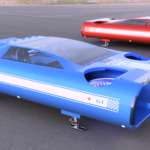Air Company has announced a strategic collaboration with Air Canada to accelerate the development of power-to-liquid sustainable aviation fuel (PtL SAF) in various North American markets by 2025.
The partnership will give Air Canada access to SAF that is entirely independent of fossil fuels and aims for the highest reduction in greenhouse gas (GHG) emissions targeting a total of 94% reduction. This feat is enabled by AIR COMPANY’s unique power-to-liquid (PtL) pathway that utilizes the company’s proprietary catalyst.
The companies also intend to explore development of AIRMADE SAF in Canada. AIRMADE SAF is a fully drop-in SAF that has already been tested with the US Air Force as a 100% fuel replacement with no blending. Air Canada joins JetBlue and Virgin Atlantic as part of Air Company’s airline ecosystem to help develop and deliver sustainable aviation fuel into North America.
“We have a grand vision for deploying our technology worldwide and we always look for partners to join us in this endeavour,” said Gregory Constantine, CEO and co-Founder of Air Company. “We are thrilled to explore opportunities to bring AIRMADE technology to Canada and to contribute to Air Canada’s goal of reaching net-zero. We have been working diligently to accelerate the commercialization of our PtL SAF to transition away from our dependency on fossil fuels in the aviation sector.”
Air Canada strategy
Michael Rousseau, president & chief executive officer at Air Canada, added, “We remain focused on seeking innovative, long-term, sustainable GHG emissions reduction solutions for aviation, and SAF is a key pillar in our strategy to achieve our ambitious goal of net-zero GHG emissions by 2050. We look forward to working together with AIR COMPANY to explore how to advance new, transformational technologies such as their unique CO2-derived SAF to scale commercially in Canada.”
The news follows a series of notable developments for Air Company including a $65 million contract with the US Air Force. Additionally, the company recently won the NASA Deep Space Food Challenge, which demonstrated the company’s ability to create protein out of carbon dioxide and water.

